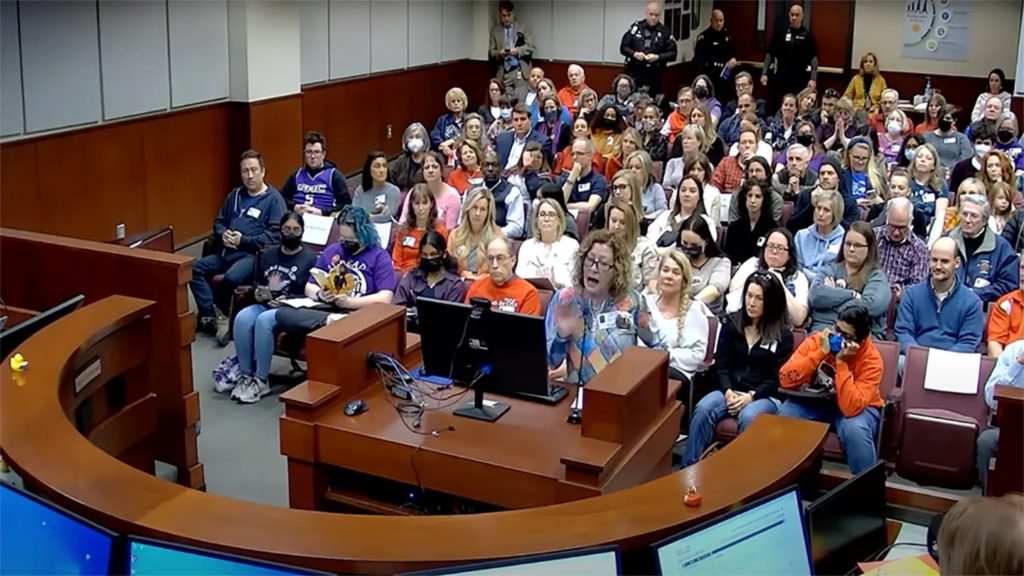Mother wins free speech case against school board that muzzled porn protest
Two Georgia moms who were prevented from protesting at a school board meeting were awarded over $100,000 by a federal court.
Cindy Martin and a group called the Mama Bears discovered pornographic…

Two Georgia moms who were prevented from protesting at a school board meeting were awarded over $100,000 by a federal court.
Cindy Martin and a group called the Mama Bears discovered pornographic material they found in their children’s schools and determined to read it at the Forsyth County school board meeting in protest.
Martin, a mother of four, reportedly read a portion of a book that described how to perform oral sex on a man.
Ironically, the board felt the language was too scandalous, and disallowed her from speaking at the meeting and later sent a letter saying she wouldn’t be allowed to speak unless she agreed not to use sexual language again.
Previously, the board took action against Alison Hair, a mother who read aloud from a young adult novel, who was also a plaintiff in the lawsuit.
“This is about polluting the minds of children. It’s about oversexualizing our children, making them numb to decent, meaningful, in my personal opinion, biblical relationships,” Hair said at the time, according to The Atlanta Journal-Constitution.
Rules governing school board meetings prohibit “profane” and “obscene” language, and the board uses other vague conduct rules to enforce censorship.
The Institute for Free Speech (IFR), which represented the Mama Bears, condemned the action of the school board: “The Board’s unconstitutional demands and policies are exacerbated by aggressive enforcement tactics and a chilling environment for dissent.”
IFR also claimed the board started using armed police and security at meetings, with one officer specifically “hovering” near people who are making public comments.
The plaintiffs and the board reached a settlement after the board agreed to eliminate the rules used to censor honest protest, reports Forsyth County News.
The judge had previously issued a temporary order against censorship pending the outcome of the suit, which likely pressured the board to fold.
“He’s basically saying they’re going to likely win on at least some of their claims,” Clare Norins, a legal scholar at the University of Georgia told the Journal-Constitution.
“So at that point, you should probably think about settling.”
The court eventually awarded $107,000 in legal fees for the plaintiffs.
Although IFR represented the women on a pro-bono basis, the plaintiffs are allowed to ask for legal fees in cases where government officials violate civil rights, said the attorneys.



